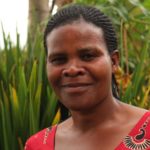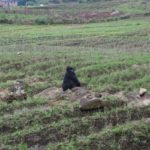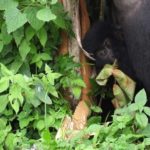Videos & Events
Cross-cultural communication and miscommunication about environmental conservation in Africa: A Conversation with Stephanie Hanes, an award-winning journalist
Over the past decade, environmental practitioners have increasingly recognized the importance of communicating their research, expertise and goals to lay audiences. But in many areas, particularly in the world’s most vulnerable regions, these efforts have done little to change behavior. Practitioners often look to solve this problem by focusing on the complicated forces they see blocking environmentally positive behavior changes – a lack of education, for instance, or perverse economic motivators. But what if the problem is more foundational? Stephanie Hanes, a Pulitzer Center on Crisis Reporting grantee and reporter on conservation in Africa, argues that undercutting many environmental efforts is a disconnect that stems from the earliest stages of conceiving and articulating problematics; a clash of world narratives that leads to lackluster results at best, and at worst results in exacerbated violence to the land and those who live on it.
Hanes’ talk was followed by Elham Shabahat, the first winner of the climate change reporting fellowship under the partnership between the Yale Program for Climate Change Communication and the Pulitzer Center. Shabahat presented on how climate change is reshaping relations between people, parks and the mountain gorilla in Rwanda.
Dr. Anthony Leiserowitz, Senior Research Scientist at FES and Director of the YPCCC moderated the Q&A.
Stephanie Hanes, Yale College ’00 (ES), is a regular correspondent for The Christian Science Monitor and an award-winning journalist whose stories have appeared in The Washington Post, USA Today, The Baltimore Sun, Smithsonian, and PBS NewsHour. Her work has been supported by the Pulitzer Center on Crisis Reporting and by a fellowship from the Alicia Patterson Foundation. Her first book, White Man’s Game: Saving Animals, Rebuilding Eden and Other Myths of Conservation in Africa, came out in 2017. She teaches the Sharp Journalism Seminar at the College of William and Mary, another partner of the Pulitzer Center’s Campus Consortium network, and lives in Western Massachusetts.
Elham Shabahat is a second-year Master’s student at FES studying conservation, environmental justice, and climate change adaptation. Previously, she worked in communications at the United Nations and the World Bank.











